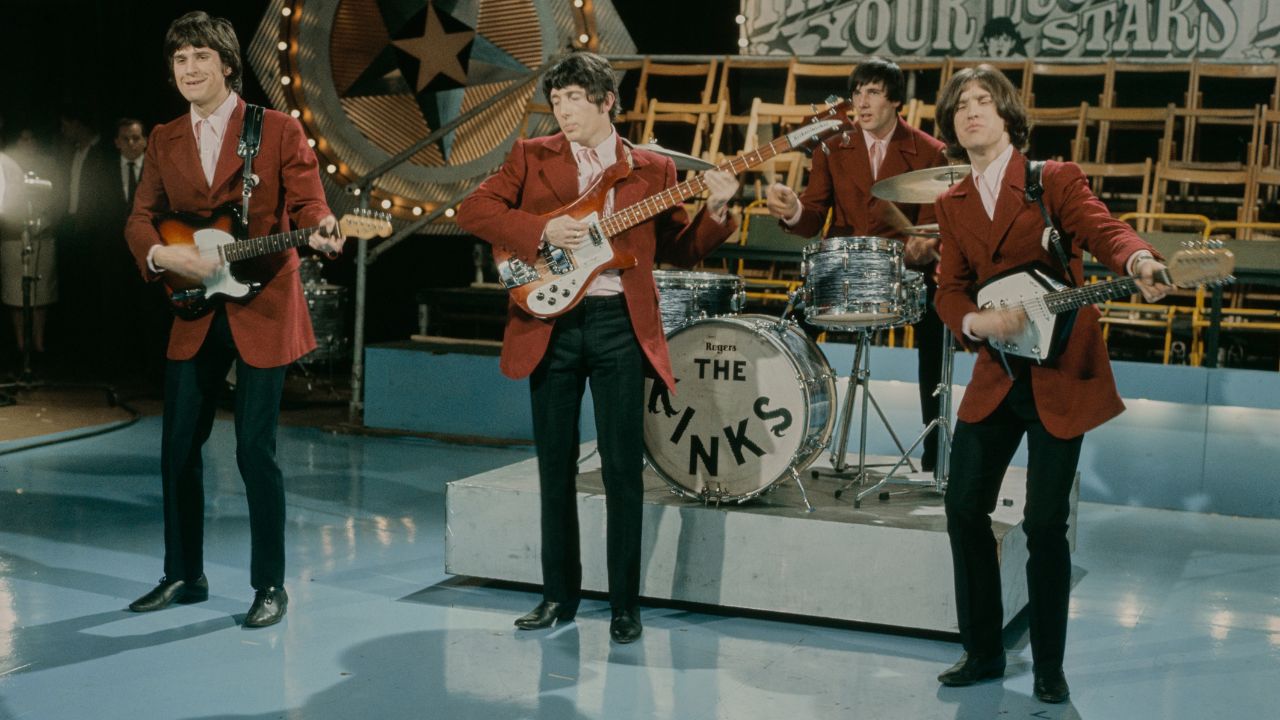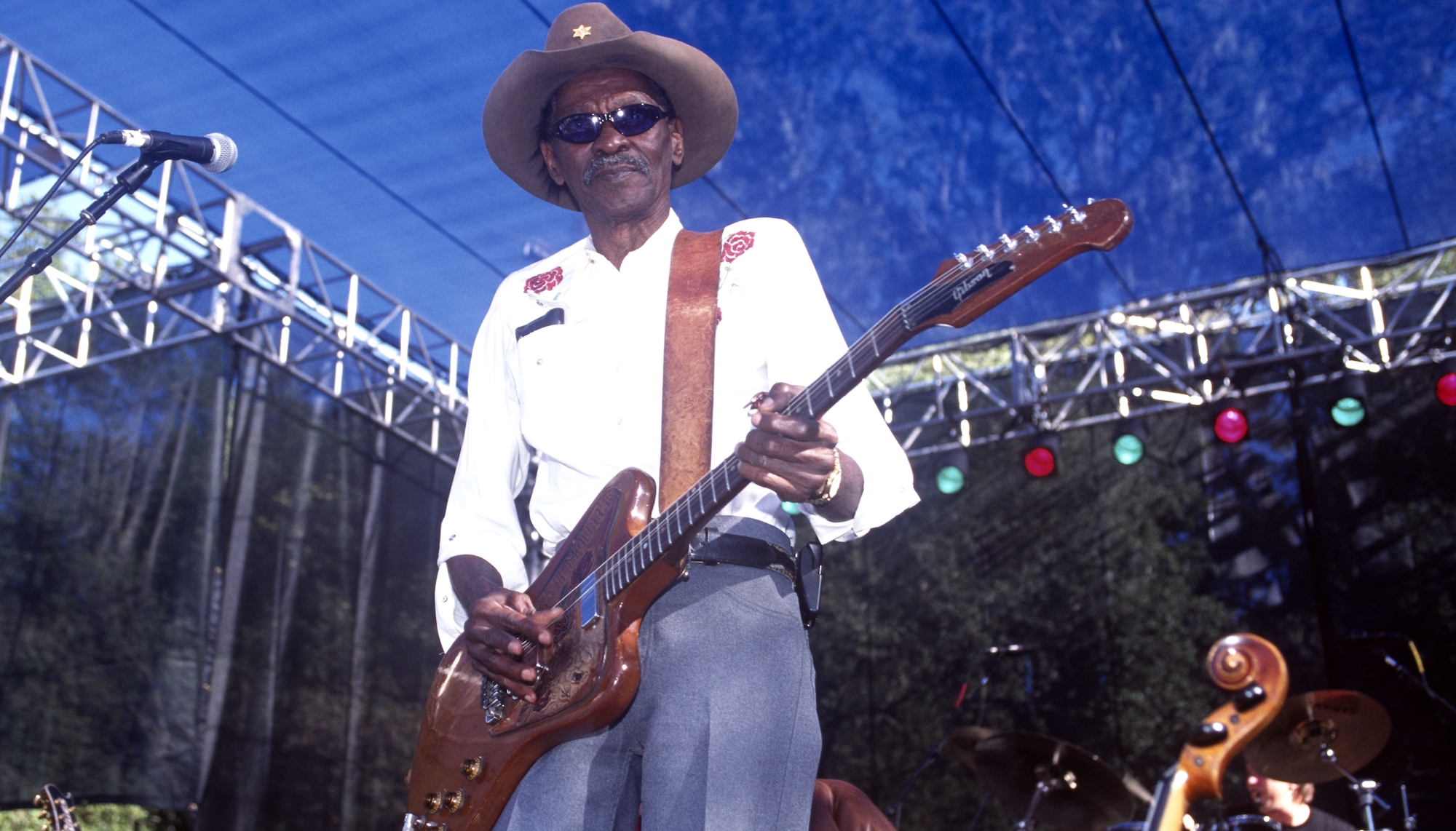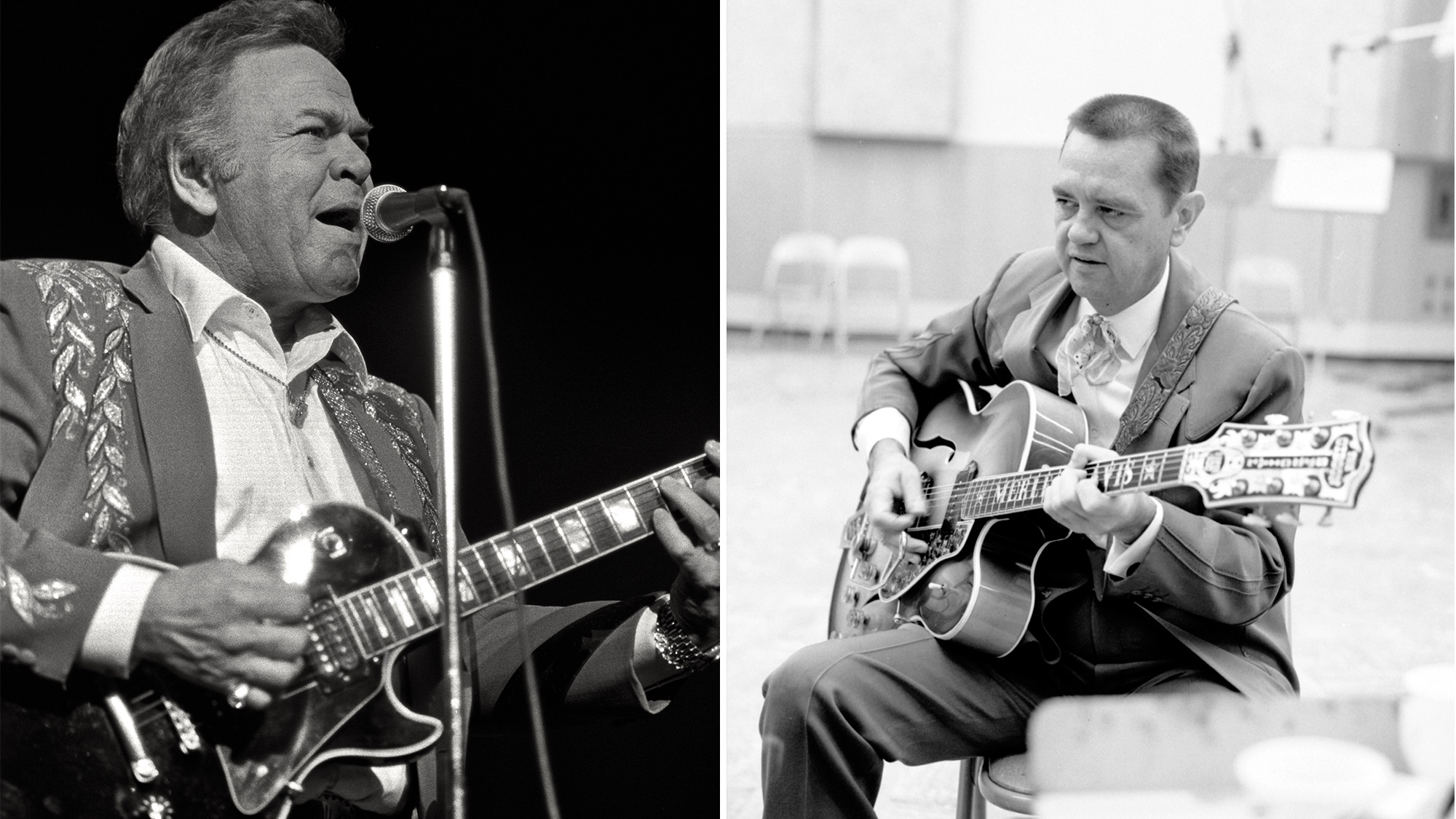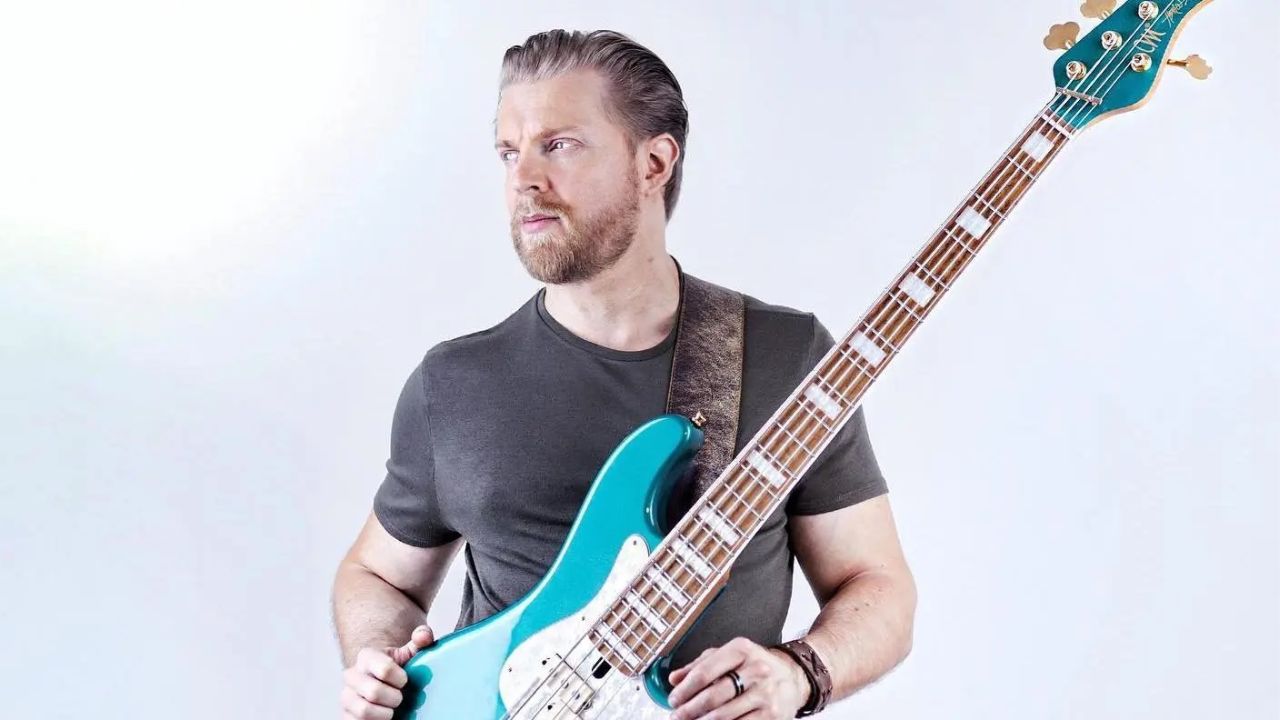Guitarist Justin Derrico Talks Musicians Institute and Life as Part of 'The Voice' Band
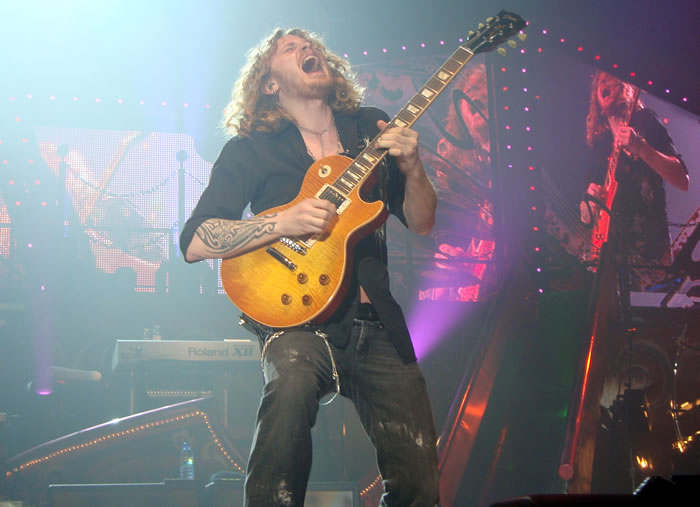
If you’re looking for a guitarist who can learn 30 songs in an afternoon, dial in the perfect tone on queue and then rip a face-melting solo in front of 30,000 people, Justin Derrico’s your guy.
Just ask Pink, Robin Thicke or Beyonce.
Growing up in Virginia, Derrico picked up the guitar in his teens after hearing classic rock gods like Jimi Hendrix and Stevie Ray Vaughan. At 24, he moved to LA with his band to chase the dream. But when the whole “Welcome to the Jungle” thing didn’t pan out, he decided to enroll at Musicians Institute in Hollywood.
At MI, he worked his ass off in and out of the practice room, playing gigs at every opportunity. It wasn’t long before people in the business took notice, and he quickly established himself as one of the most in-demand musicians in LA.
I talked with Derrico about studying at MI, what it takes to be a professional in the music business and what it’s like to be a part of the backing band for The Voice, you know, the most popular show on TV.
GUITAR WORLD: How did your experience at MI prepare you for your career going forward? Is that where you were inspired to become a professional touring/session guy?
I started playing when I was about 15 and I always knew I wanted to be a musician. But the thought never crossed my mind of, “How am I going to make a living?” It was pretty typical; I was in a band and we moved out to LA but then we broke up. So I started attending MI and I began to meet people and see people getting gigs. I thought, “Hey, maybe I should start trying to get some gigs instead of putting all of my focus in a band.”
Get The Pick Newsletter
All the latest guitar news, interviews, lessons, reviews, deals and more, direct to your inbox!
MI prepared me in a big way. One thing that was amazing about it was that no class started before 10 a.m., so I could always play gigs at night. I went to Shenandoah Conservatory of Music for about a year and a half before. When I was a student there, I would do a lot of gigs with my band and the school wasn't supportive of it. I’d be playing all night and then my professors would fail me for not making it to my 8 a.m. class.
At MI, they encourage that. You could tell a professor, “Hey, I have a gig I’m not going to be able to make it class,” and they’d tell me, “Go do your gig.” That was the mentality. At Shenandoah, I learned a lot about theory and ear training, which gave me a great foundation. At MI, they taught me a lot about technique and also opened me up to a lot of different types of music.
There were also tons of great guitar players who played all types of music. Even if you didn’t have Scott Henderson or Alan Hinds or Al Bonhomme as one of your teachers, you could still go to a class called Open Counseling, where you could sit in with these guys and jam. I learned a lot from just jamming with those guys.
We also had a class called The Real World, where they’d send you home with a chart or a song to learn. And if you didn’t learn it by the next class, the guy was a real hard ass. It was a bit of tough love, but it made you realize how cutthroat the business really is and how you really need to know your shit.
How did you get your first break into the business?
At MI, I met my friend Dori who does The Voice with me as well. He put me in touch with Barry Squire. Barry finds musicians for bands and labels and has a roster full of drummers, bass players and guitar players. So I was jamming one day with Dori and he got a call from Barry for an audition. Dori asked him if I could come along and Barry was like, “Sure, bring him down.” The audition was for The Calling, which was my first big gig as a professional musician.
How does the experience of being a professional musician compare to playing in your own band?
The main difference is that when you’re in your own band; you’re your own boss. It’s up to you to bring in songwriting ideas, but there’s not as much pressure as there is when you’re playing for somebody else. Then somebody is paying you to do a job and you have to be on top of your game, know everything you possibly can and not fuck up. The pressure is on and you’ve got to be perfect all the time.
In a live situation like The Voice or a concert DVD, you’ve only got one shot. And a lot of things can go wrong: you can break a string, your amp can go down or your pedal can lose charge. You always want to have back plans and be prepared for everything.
The Voice is also a constant grind day in and day out. There will be some days where we’ll have to learn 25 songs. You’ll have no time to listen to them except right before you play them. We listen to each song maybe once or twice, rehearse it and take it home to work on our own parts, and then the next day we play it on the show.
Besides knowing the songs, what else do you have to think about performance-wise when you’re a part of a big production like The Voice?
There’s definitely a lot of that involved. You have to be able to take direction and work with the show director, especially when we are gearing up for a big tour. We do a lot of preparation in production rehearsals, where we’re on the stage that we’re going to be performing on every night. We run the show a couple times a day and the show director will tell us, “Hey, at verse 2 in this song, I need you to be in this spot for eight bars, and then you have to make way for the dancers and move over here.”
After you’ve rehearsed for a couple of days, it becomes automatic, like muscle memory. It gets to a point where during the show, if I’m not in the spot I’m supposed to be in, something feels weird. It’s like, “Wait a minute … Oh shit, I need to be over here!”
What advice do you have for someone trying to break in as a professional session or touring musician?
I think the best thing to do is to play out as much as you possibly can. Be heard and be seen; you never know who’s going to be there. Then you can build a reputation as the guy who is always on top of his shit and always on time. Punctuality is important. And being a nice guy doesn’t hurt either. There are a lot of guys with a lot of attitude out there and they don’t get work because of it. It’s a shame; they’re their own worst enemy.
But I think the main thing is to get out there and play as much as possible. Something will happen for you and people will notice. If you’re great, people will want to work with you and they’ll hire you for things. One gig leads to another gig. Always. In my entire career, which I’ve been so blessed with so far, every gig I’ve had has led to the next gig. It’s gotten me to the place I’m at now and it’s been a great ride so far.
Who’s the coolest coach on The Voice?
Oh no, man, you’re going to get me in trouble! They’re all really cool, but I love Blake. He’s a lot of fun, and I’m from Virginia so I’m a Southern dude like him. Me and him get along really well. He’s always cracking jokes; he’s a funny dude. Adam and Pharrell are also great. Usher and Shakira are really cool. I’ve really enjoyed working with both of them. Usher especially, is such a hard worker and a really talented guy.
So you get a lot of interaction working with them in rehearsals?
Oh yeah. They are super-involved. When we get to the live rounds, all of the decisions about arrangements are made by the coaches and contestants. The coach will come in with an idea, or we’ll start jamming on something and spark ideas that way.
That’s cool to hear they’re so involved. It’s easy to be cynical and assume its all just for TV.
Totally. When I first started the show I was thinking the same thing. You know, “They don’t give a shit.” But the reality is that they care very much. Adam for example is so competitive, especially against Blake. He just hates to lose and there’s something really cool about that.
For more about Derrico, visit justinderrico.
Ethan Varian is a freelance writer and guitarist based in San Francisco. He has performed with a number of rock, blues, jazz and bluegrass groups in the Bay Area and in Colorado. Follow him on Twitter.
“Chuck Berry's not a very good guitar player. He's a clown. He runs all over the guitar, just like any one of these old rock players would do, and makes no sense”: Clarence “Gatemouth” Brown pulled no punches when speaking about his fellow guitar heroes
“I said, ‘Merle, do you remember this?’ and I played him his song Sweet Bunch of Daisies. He said, ‘I remember it. I've never heard it played that good’”: When Roy Clark met his guitar hero
